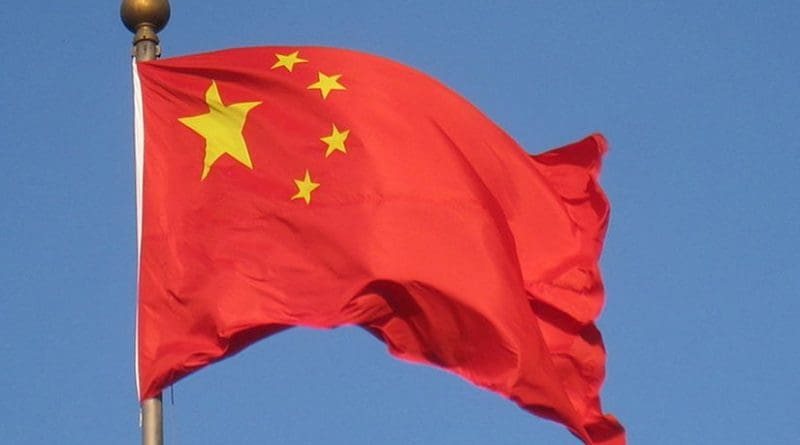China Seeks Wider Global Reach With African Loans, Naval Presence: Analysts
By RFA
China on Friday announced it would extend $60 billion in debt facilities to African countries as well as writing off existing loans in a three-year plan to extend its influence in the region.
President Xi Jinping unveiled the plan in conference with leaders at a meeting of the African Union, while pledging at the same time not to “interfere in the internal affairs” of sovereign African nations.
But analysts said Beijing is now engaged in a long-term strategy to expand its political and military influence around the world.
Xi’s announcement comes after China said last week it was in talks with the Horn of Africa country Djibouti to build a permanent military logistics base to support Chinese peacekeeping and anti-piracy missions.
Beijing has repeatedly said it does not want military bases abroad, nor does it seek political interference in the “internal affairs” of other countries.
African critics of China’s already extensive presence in the continent say Beijing favors Chinese companies for major infrastructure projects, and imports Chinese workers rather than creating jobs for Africans.
But Xi told the two-day Forum on China-Africa Cooperation in South Africa that Beijing wants to “address issues holding back Africa’s development.”
“[These are]: inadequate infrastructure, lack of professional and skilled personnel, and funding shortages,” according to Xi, who addressed the conference following a visit to Zimbabwe, where President Robert Mugabe’s government signed 10 economic accords with Beijing.
Long-term strategy
China, whose own economic growth has slowed in recent years, plans to step up investment in factories manufacturing goods for export, as well as building roads, ports, and railways.
In return, analysts said China regards Africa as a major source of commodities and as a region ripe for Beijing’s expanding political influence.
Li Xiaobing, director of the Western Pacific Institute at the University of Central Oklahoma, said China’s plan for a military base in Djibouti is part of a long-term plan to widen its military influence around the world.
“In the past, anti-terrorism or anti-piracy or peacekeeping missions had a time limit on them,” Li said.
“But the construction of this base in Djibouti is significant in terms of a longer-term strategy.”
He said Xi, who has waged a nationwide anti-corruption campaign since coming to power in late 2012, is now looking for further areas in which to consolidate his power.
“Xi Jinping is securely ensconced in Zhongnanhai,” Li said, referring to China’s national leadership compound in Beijing. “And he has rectified the local government and the military as far as he can.”
“But he has barely made a start overseas … Now he wants to set up a … Sinocentric power base.”
He said Xi’s strategy comes against the background of a Chinese sense of victimhood at the hands of 19th century colonial powers.
“[Some Chinese people think] that they have always been the victims, and that they should now rise up and take the opportunities that are there for development and expansion,” he said.
Colonialist path
Peter Kwong, Distinguished Professor at the City University of New York, agreed, saying that China appears to be taking a well-trodden colonialist path in Africa.
“It’s very similar to the [European] colonialism of the 19th century,” Kwong said.
“It’s not just about resources; it’s also about achieving political control over these places.”
Zhu Yongde, honorary professor at the Rochester Institute of Technology, said Xi is continuing his bid to become a major player in global politics.
“Xi Jinping is probably feeling the effects of having attended a number of international meetings recently,” Zhu said.
He said Xi is setting out to make China’s presence strongly felt on the international stage.
Responding to Xi on Friday, South African President Jacob Zuma said African countries need Chinese help to process abundant natural resources that have made them vulnerable to exploitation.
“That way what is buried in the belly of the soil will translate into benefit for the bellies of our citizens,” Zuma said.
Joint naval exercises
People’s Liberation Army (PLA) naval forces meanwhile held their first joint exercises with NATO ships last week on an anti-piracy mission, as Beijing seeks a greater role in global security.
China’s navy has a long-standing presence in the waters off Yemen and Somalia, where its merchant ships and oil tankers are frequent visitors, and where it helped evacuate people from Yemen’s civil war earlier this year.
China is Africa’s largest trading partner and the trade volume between them amounted to U.S.$220 billion in 2014, the official news agency Xinhua reported.
London-based BMI Research has estimated that Chinese investments in African countries stood at U.S.$32.4 billion at the end of last year.
Reported by Yang Jiadai for RFA’s Mandarin Service. Translated and written in English by Luisetta Mudie.

